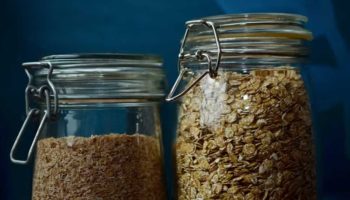Do you know what can happen to your body if you eat foods with mold? Accidental ingestion can have health consequences.
Mold on bread
Eating moldy foods can pose a health risk due to the possible presence of toxins produced by the mold itself, such as aflatoxin. Molds are fungal organisms that grow on various types of surfaces, including foods such as bread, cheese, fruits and vegetables.
Toxins produced by molds can cause food poisoning called mycotoxicosis. Symptoms of food poisoning from mold can vary depending on the type of toxin and the amount ingested, but may include nausea, vomiting, diarrhea, stomach pain, abdominal cramps, and even allergic reactions in some cases. Some people may be more sensitive to mold toxins than others, such as those with weakened immune systems or mold allergies. In these cases, eating foods with mold can lead to serious health complications.
What happens to your body when you eat foods with mold?
It is important to note that visually removing mold from a food is not always enough. Mold can have invisible roots that can penetrate food. Therefore, even if you remove visible mold, toxins may still be present. To avoid health problems, it is best not to eat foods with mold. If you find food with mold, it is advisable to throw it away and also check surrounding foods to make sure the mold has not spread. It is important to store food properly to minimize the possibility of mold growth. Finally, if you suspect you have eaten food contaminated with mold and feel ill, it is advisable to see a doctor.
Eating moldy food: What you can do
If you accidentally eat moldy food, it is important to take some precautions. Here’s what to do :
- First, you must spit the moldy piece of food out of your mouth immediately. Do not try to swallow it or remove it with your hands. Rinse your mouth well with water or a saline solution to remove any residue.
- Monitor symptoms carefully. If you experience symptoms such as nausea, vomiting, diarrhea or other signs of food poisoning , you should seek medical attention. If possible, keep contaminated food to show your doctor. This may be helpful in identifying the type of mold on the surface of the food.
- Assess overall health. If you have a pre-existing condition or a weakened immune system, it is advisable to see a doctor even if symptoms are not yet apparent.
In general, accidental consumption of a small amount of mold does not usually cause serious problems. However, it is important to pay attention to symptoms and seek medical attention if necessary, especially if you suspect you have ingested a significant amount of mold or if you are particularly sensitive to mold toxins.
As a general rule, it is always best to avoid eating moldy foods. Check your food regularly and throw away any food that shows signs of mold.



